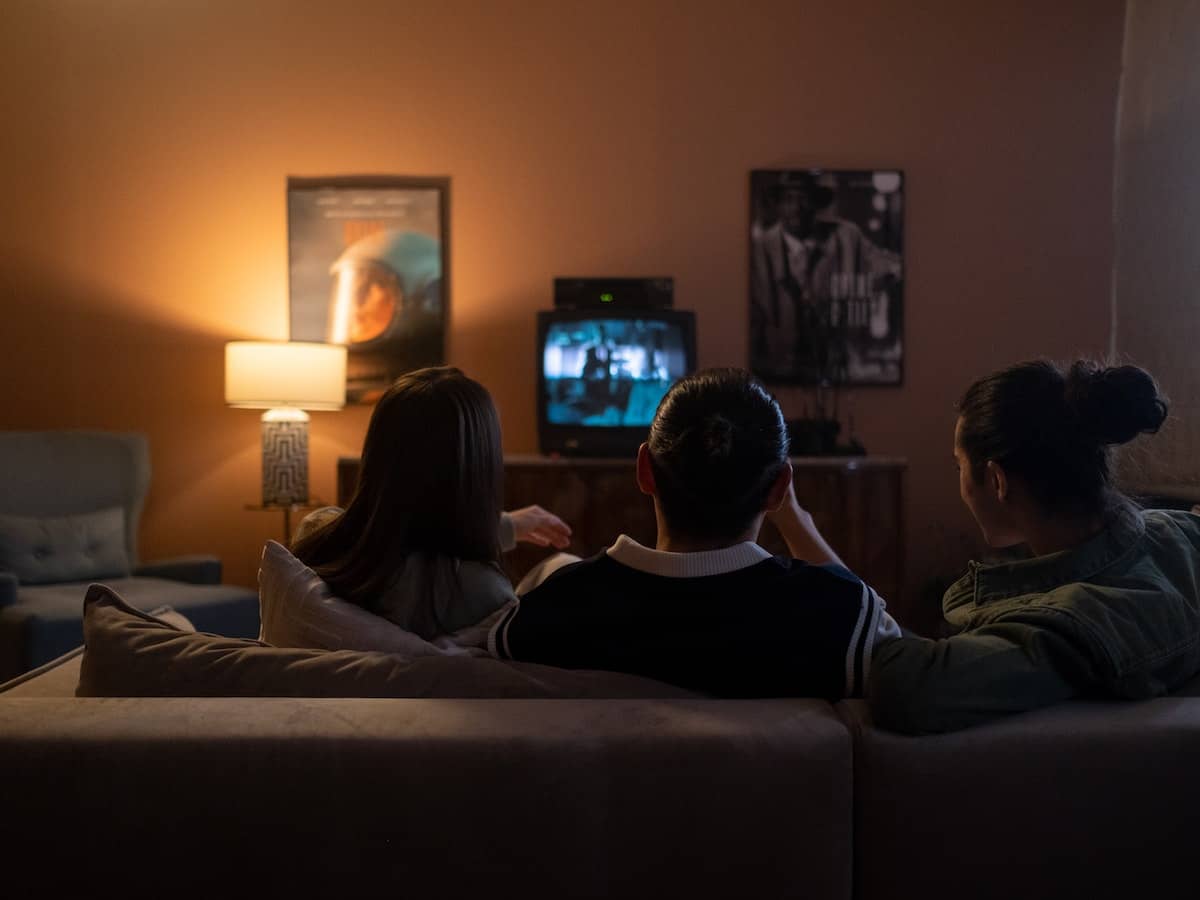"Lady in the Water," was what it read. Not all that surprising. But, underneath, the director had jotted down the words "defending angels." This gave Howard--who made her film debut two years ago in Shyamalan's "The Village" and was reuniting with her director as the 'Lady' of his movie's title--the illumination she was looking for.
"I thought, 'Oh, that's what it is!'" Howard says as she joins writer/director Shyamalan and co-star Paul Giamatti at a Manhattan hotel to talk to press about the film. "It's 'what is an angel in a person's life?' Someone who fulfills some role in your life when you need it most."
"Lady in the Water" began as a bedtime story Shyamalan created off-the-cuff for his two young daughters, setting a mystical water nymph--or narf, as he calls her--in as common a location as a backyard pool. There the narf will swim until she is spotted by her human vessel, a person whom she will wordlessly inspire to fulfill his or her greater purpose. And while on earth, she will physically and emotionally heal all others that she comes in contact with.
"If they were scared before, they won't be scared," Shyamalan says he told his children one night before they fell asleep. "If they were shy before, they won't be shy."
In the film version of his original fairy tale, an apartment superintendent (Giamatti) is cured of a trauma-triggered stutter.
Rebirth--religious or otherwise--isn't a new topic for the filmmaker. In "Signs," a minister played by Mel Gibson renounces his faith when his wife dies, and reconsiders it when his town is trounced by world-ending aliens. In "The Village," a group of elders attempt to preserve innocence by creating their interpretation of utopia.
And in "Lady in the Water," perhaps Shyamalan's most fantastical film yet, belief in fairy tales unites a disparate group of neighbors and saves the superintendent, Giamatti's Cleveland Heep, from a perpetually downtrodden existence.
"She uncovers that he's hiding, (in) self purgatory," says Shyamalan. "He wasn't there for his family. This is his self imposed punishment for what he feels he was lacking."
When Howard's narf, named Story, shows up at an apartment complex outside Philadelphia, she saves Cleveland from a near-drowning. He takes her into his ramshackle home, providing protection from the scrunt, a deadly animal who wants to kill the narf and who hides, poisonous claws and all, in the grass.
The legend of the narf is told to Cleveland by a college student (Cindy Cheung), who insists that it comes from age-old Korean folklore--though it's really Shyamalan's dependable imagination. The narf has come down from her home, the Blue World--what it this is left to the imagination--to find her vessel. But if she doesn't return, repercussions could be drastic.
"If she doesn't get home, the world's going to end," Giamatti says. "Green wolves are going to come out of everywhere and kill everybody if we don't get her back."
To return to the Blue World she must be seen by her vessel, and be assisted in her journey by several humans: the guardian (who will protect her), the interpreter (who will decipher codes), the seven-member guild (which will distract the scrunt), and, in the most extreme of circumstances, the healer (who will restore life in a narf scratched three times by a scrunt).
But in this fairy tale no one knows their purpose from the get-go. Story doesn't know she is the Madam Narf; nor does she want such great responsibility. And as Story grapples with her newfound purpose, she must tell her vessel--a writer whose book will in the future change the world--that he will make a tremendous sacrifice.
"It's the idea that a person is told their contribution is going to be important down the line," Shyamalan says. "It will cause a chain.... Every single person in that chain has to do the right thing, but you are crucial in that chain."
Would Shyamalan want to be part of one important chain?
"I'm not that brave a guy," the director says. "If a building was burning down and you were burning in it, I'd probably be like, 'Somebody help her!' But if I knew you were an amazing author, and the only copy of your book was in the building, I wouldn't hesitate at all. The preservation of an idea is far more important than anything I can imagine. Something I always talk about with younger actors when we're on a film is 'What would you be willing to do to insure that your message gets out there?'"
That's a question Howard, 24 when the film was shot, is still trying to answer.
"I was like, 'What's my purpose?'" the actress says. "I was asking such big questions while I was making this movie--about religion, about spirituality, about having faith in something that at the time would seem absurd."
Absurdity rears its head as Cleveland's tenants--including a crossword puzzle guru (Jeffrey Wright) and an animal lover (Mary Beth Hurt)--gather in a mailroom where Story suffers from potentially fatal scrunt scratches. They must uncover their respective identities--healer, guardian, interpreter, members of the guild--to save her life and return her to the Blue World.
"(Night) wanted people, like in a fairy tale, to not question it at all," Giamatti says of the movie's plausibility. "They just immediately accept that the wolf is dressed like my grandmother. It's literally a defense of imagination."
Could this be why Cleveland's tenants, like young children listening to folklore, accept the most outlandish situations? And why they fight so hard to save Story, a figurative angel quite literally named?
"The whole movie is about storytelling as a metaphor for life, a religion," says Shyamalan. "There's a beautiful balance to inexperience and point-of-view that people almost intercept and then they lose it. It's a childlike thing, to believe."

